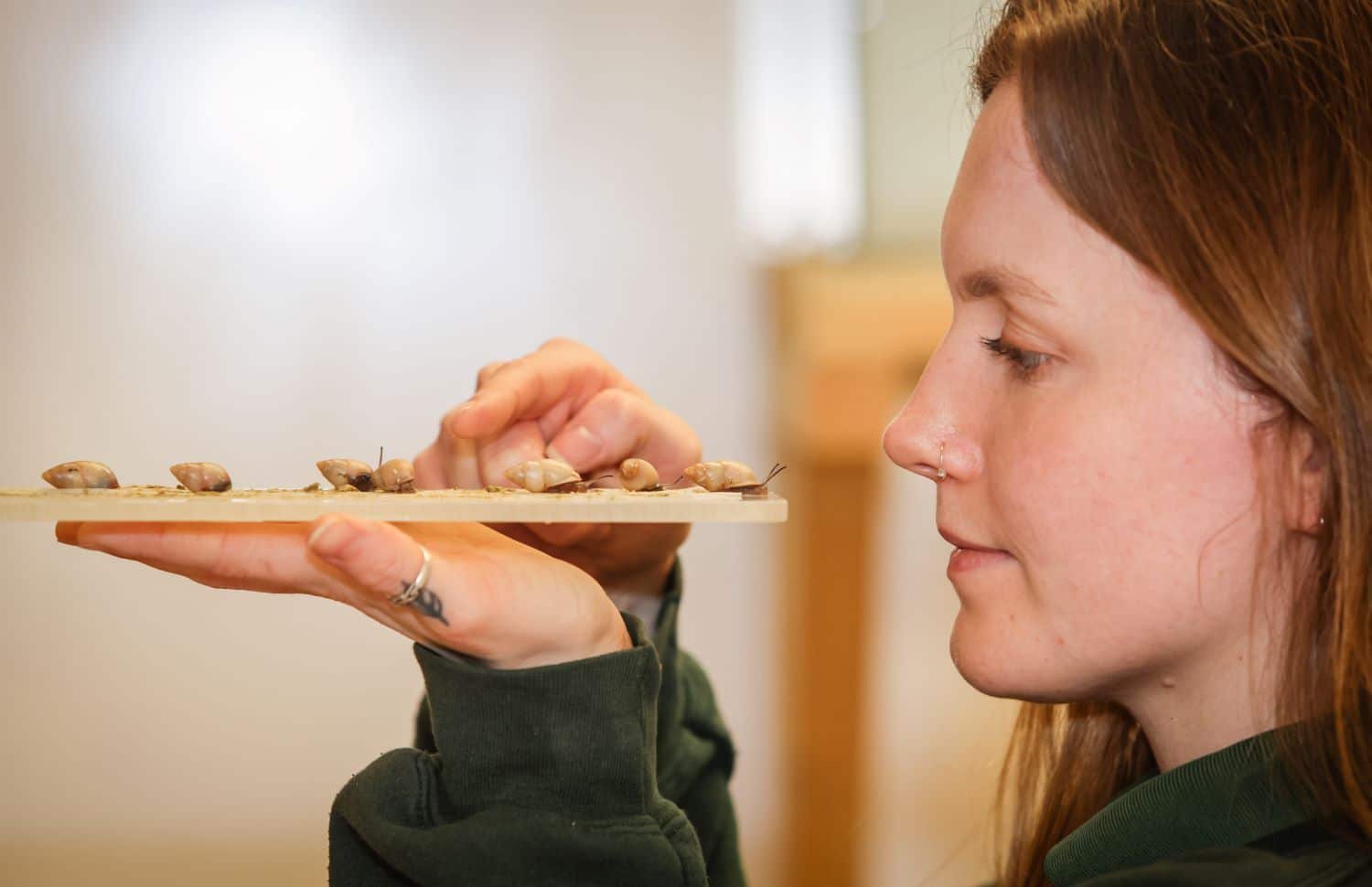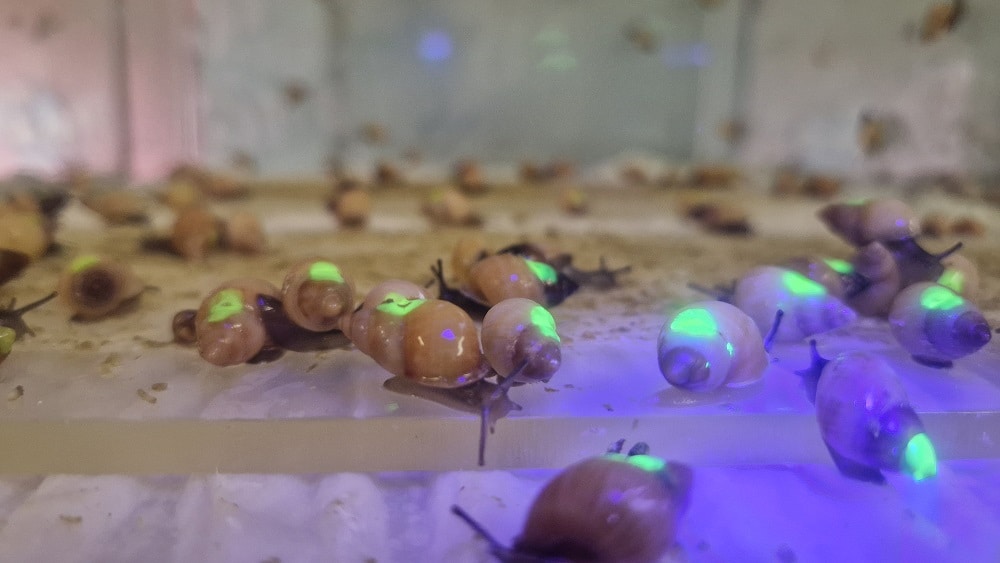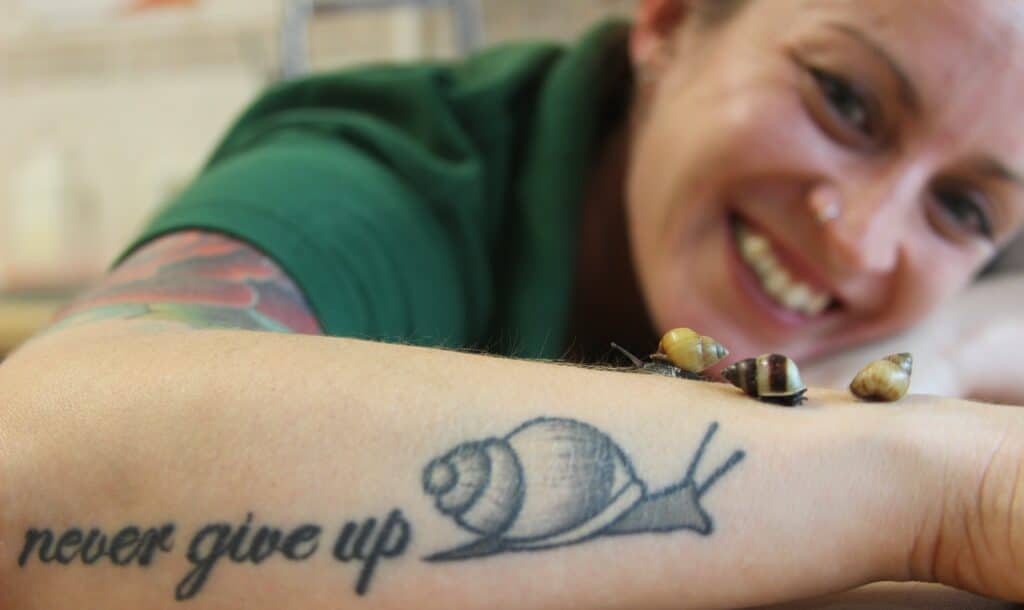A tiny snail, a huge win for conservation!
March 27, 2025
March 27, 2025

We’re celebrating a remarkable achievement – a rare Polynesian tree snail is no longer extinct in the wild thanks to decades of conservation work.
The Partula tohiveana snail has officially been downlisted on the IUCN Red List to Critically Endangered, testament to what can be achieved when we all work together.
This milestone follows the discovery last year of wild-born Partula tohiveana individuals in Moorea, confirming the species is successfully breeding in their native habitat.

Dan Garrick, Marwell’s Team Leader Birds, Lower Vertebrates & Invertebrates, said: “This is a landmark moment for the species. Marwell has been dedicated to the Partula snail programme since 2006, and collaboration with our programme partners, such as moving Partula tohiveana snails to London and Düsseldorf, is essential for maintaining the health and genetic diversity of this genus. Such gains in conservation reinforces the great work the programme and all contributors do.”
Last year, Marwell contributed 1,640 snails to the reintroduction to French Polynesia. Amazingly, we hold the only Partula mooreana in the world, a species that is extinct in the wild.
Ali Reynolds, Senior Keeper, Lower Vertebrates & Invertebrates, said: “If we’ve done it once, we can do it again! It was so heartening when I heard the news of tohiveana being downlisted, it makes all our efforts worthwhile, and shows what a difference zoos can make.

“We are the only place in the world holding this extinct in the wild species and we contributed 110 snails to the 2024 release. Our hope is that the mooreana do as well as the tohiveana, and in the future can also be downlisted.”
Ali, who is a member of the EAZA Ex situ Programme Committee for Partula snails, says the more you learn about Partula, the more fascinating they become.
“Partula, as a genus, are interesting for many reasons! They show a high level of speciation, meaning single species evolved in very small specific areas – sometimes living in only one valley. They are unusual amongst snails, as they don’t lay eggs, but give birth to a single live young. In fact, they are named after Partula, the Roman goddess of birth!
“Given the cause of their decline is entirely manmade, we have a responsibly to try to make things right, and this shows that is possible!”